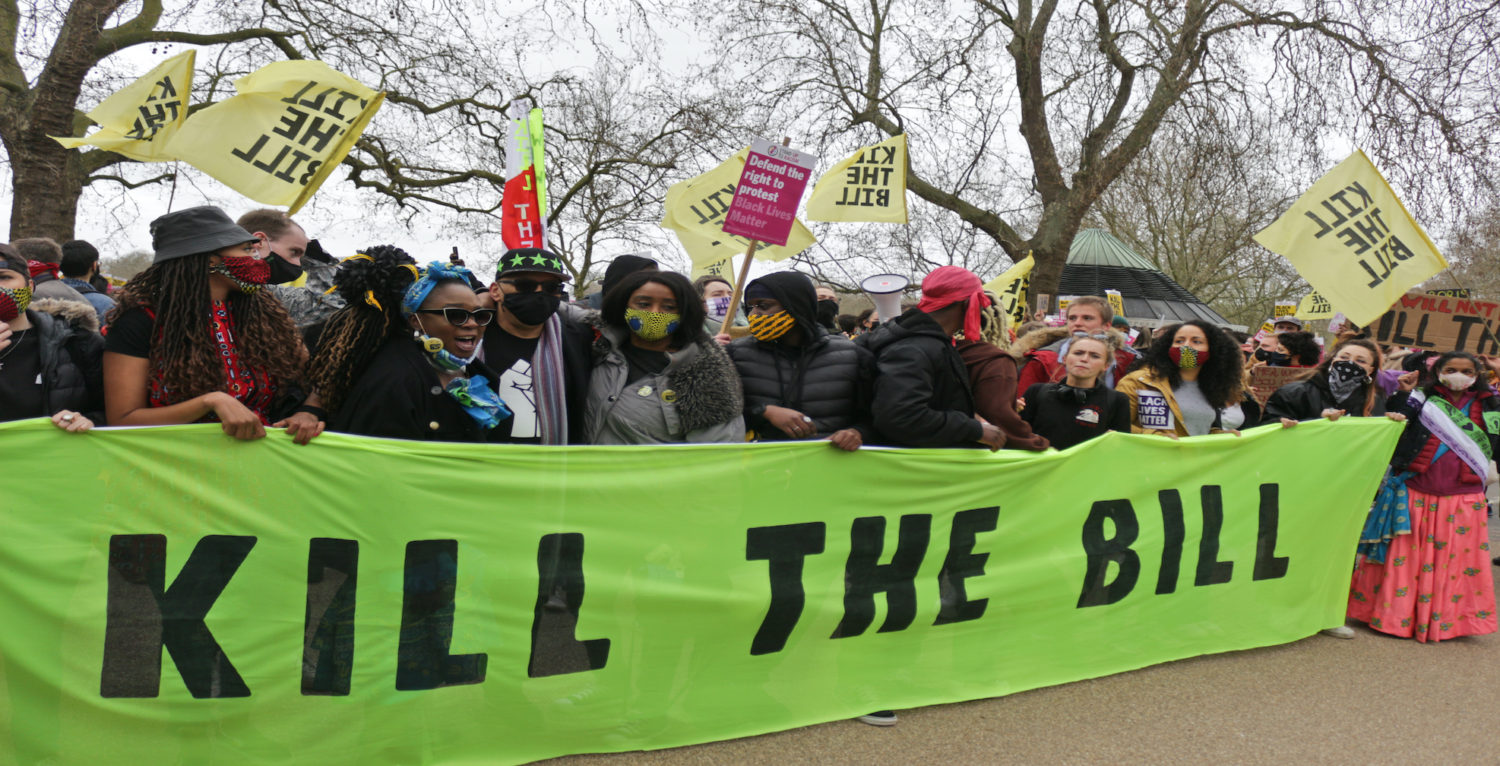Policing history
Labour must go further in the fight against institutional racism, argues Meghan Tinsley.
Earlier this year, thousands of people marched through central London to protest over the proposed police, crime, sentencing and courts bill. The crowd made their way down Park Lane, past Buckingham Palace, and on to Parliament Square. As police encroached on the crowd to clear a path for traffic, clashes broke out, and police pepper sprayed several protesters. Then riot police pushed through the crowd and marched into the square, forming a protective circle around the statue of Winston Churchill. Why did the police devote so many resources to protecting a statue? And what did this have to do with the bill the crowd was protesting against?
The police, crime, sentencing and courts (PCSC) bill threatens to infringe upon the right to peaceful assembly. In particular, Clauses 54 and 55 would empower police to intervene in a protest if ‘the noise generated … may result in serious disruption’ to a nearby organisation, or if they determined that the noise was causing ‘serious unease, alarm, or distress’ to people in the vicinity. That the bill was tabled in the wake of the largest anti-racist movement in Britain since abolition is no accident: the home secretary had described the Black Lives Matter protests as ‘dreadful’, and had condemned the toppling of Edward Colston’s statue in Bristol as ‘mob rule’. Indeed, Clause 59 of the bill increases the maximum penalty for damaging a statue from three months to 10 years.
Protecting the Churchill statue signalled that the government was committed to propping up a particular narrative of history. Actively restricting the right to protest – in particular, to alter statues – revealed that history is neither singular nor settled. Rather, our relationship to the past continues to shape the present. Only by engaging with the past may we overcome the ongoing violence of institutional racism and coloniality in the present.
The Black Lives Matter movement is, at its core, about racism and state violence. The people who took to the streets in the hundreds of thousands last summer did so not only in solidarity with AfricanAmericans, but also to proclaim that ‘the UK is not innocent’. They highlighted the names of Black Britons who had died in police custody – Rashan Charles, Sean Rigg, Sara Reed. They also called on the government to remember the history of the British Empire, and to teach that history in schools. These demands must be taken together: remembering that the British Empire at its height spanned four continents, and encompassed one quarter of the world’s population, lays bare the lie that Britain is historically a ‘white’ country.
Further, remembering that Britain conquered and ruled its empire through brutal violence, from the suppression of the Morant Bay rebellion to the aftermath of the Mau Mau uprising, demonstrates that violence against Black and minority ethnic people is a longstanding practice of the British state. The fact that Black people in Britain today are disproportionately represented in stop and search, arrests, prison sentences, and deaths in custody cannot be understood separately from imperial history. In order to oppose contemporary institutional racism, we must engage critically with empire and its legacies.
The PCSC bill does the opposite: it actively criminalises people who engage critically with the past. Rather than reckoning critically with the scale of the slave trade and its legacies for British institutions, the government claims that ‘we cannot edit our past’. Rather than researching the links of historical figures to slavery and empire, the government reduces them to statues who must be revered. And rather than listening to Black Lives Matter activists, the government dismisses them as ‘thugs and criminals’.
In this context, there should be no question about Labour’s opposition to the PCSC bill. To oppose this bill is to reject the government’s attempt to replace critical history with a contrived culture war.
Yet Labour must go further: engaging with empire and its legacies must entail actively supporting and listening to antiracist social movements, like Black Lives Matter, which link past and present. Labour should call for reform of the history curriculum so that every student learns the history of the British Empire, including the state violence that maintained it. And Labour should encourage the initiatives to engage critically with the past that have proliferated in Labour-led councils, from London’s commission on diversity in the public realm to Manchester’s Histories, Stories, Voices.
The police, crime, sentencing and courts bill is part of a larger government effort to impose a narrow, ahistorical understanding of Britain’s past and present – and, by extension, a narrow understanding of who has the right to belong. To counter the violence of this narrative in the present, Labour must engage with history in its messy totality.
Image credit: Steve Eason/Flickr

